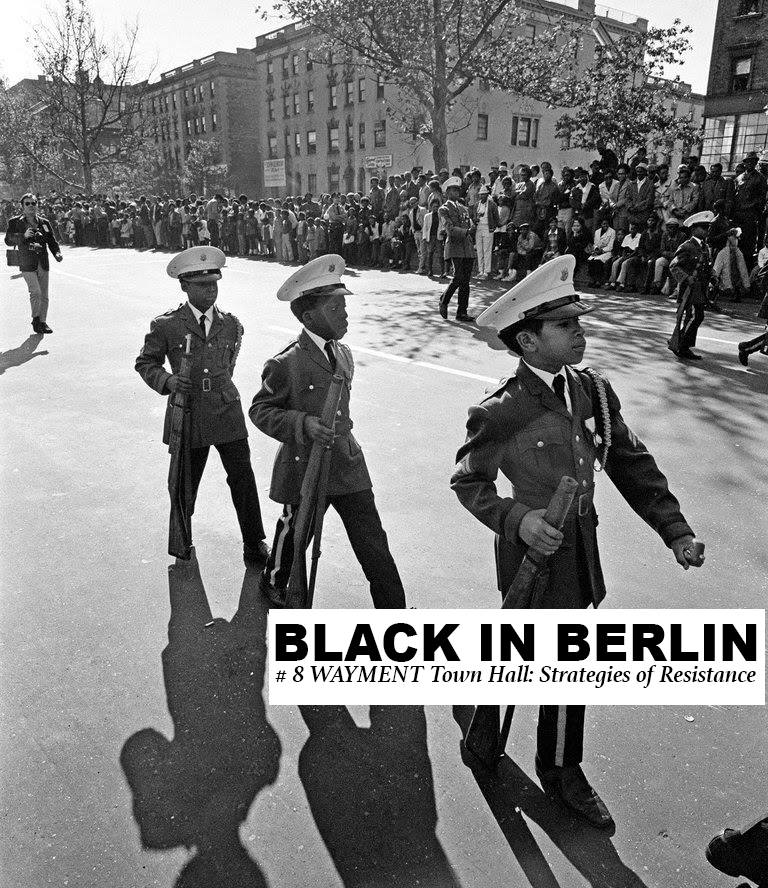IN SEASON Salon
The In Season salon is a discursive event that invites participants to engage in dialogue loosely operated around themes at the intersection of cultural archiving, memory work and diasporic thinking. Participants are encouraged to join in directly with the ritual of open conversation, contributing their personal knowledge and shared histories with one another. The salon dialogue format is developed by Jessica Lauren Elizabeth Taylor based on her salon series “Black in Berlin” (2016-2017). The salon is a moving dialogue changing location, theme and special guest at each event. Each salon will produce a living history memory work, present in the participants and embedded within each physical space.
Asturp Fearnley Museet. Guest: Cauleen Smith
How can we be the kinkeepers of each other? How can we kinkeep the earth, whose responsibility is it to take care? We will discuss the realms, spaces and places beyond our current realities, where death lives and how to access utopia.
Black in Berlin Salon
In 2012, the salon style series ‘Black in Berlin’ was formed as a reaction to the appropriation of Afropean culture by the German, English- language mainstream media. The experience of being Black in Berlin can oftentimes be polarizing. The lingering effects of African colonization that are ever present in the city mixed with the inherent alienation of “representing” the other creates a complex day to day existence. This paradox does not have to be internalized. The Black in Berlin Salon is an opportunity to dialogue issues, foster community and generate conversation with the willing to listen. The salon encourages people of all races and backgrounds to participate in the discussion but privileges the voices of the African diasporic. In 2016, the format was revised to feature a guest interview related to the topic that served as a pre-cursor to the open conversation. Each session of the Black in Berlin Salon operates loosely around a different theme. The event images below are from the 2016/2017 series.
Hallesches Haus. Guest: Zen Jefferson
The Politics of Community
Who owns culture? What is appropriation? How do appropriation and appreciation intersect? And what makes it so damn confusing? The taking of intellectual property, traditional knowledge, cultural expressions, or artifacts from someone else's culture without permission has become a regular transaction is pop culture. In the first salon on the year, we will discuss how privileged communities “showing appreciation for a culture” can be damaging or even dangerous to certain communities.
KW Institute for Contemporary Art. Guest: Nine Yamamoto
The Myth of Integration
More than a decade ago Angela Merkel stated “Integration has failed in Germany.” Sixty years after de-segregation, many schools in the southern United States have gone back to being separate and un-equal. Integration is often a system built on false promise and double standards. In the March salon, we’ll discuss how the politics of racial integration define the way entire communities move, or more often are immobilized, in their environments.
Savvy Contemporary. Guests: Laurel and Jermain Raffington
The Afropean Experience
The Afropean Experience is a rich, textured testament to the fact that Blackness is not a monolith. How do the stories from the African Diaspora differ and what connects them? In the April salon, we will discuss issues surrounding home, identity and representation.
Shakespeare and Sons Bookstore. Guests: Cienna Davis and Nasheeka Nedsreal
The Politics of Community
Our interpersonal relationships are defined by many factors: language and the spaces we inhabit are two of the greatest. How do the communities we inhabit and the ones we build shape who you are? Is it important to have physical communities of people that look like you? In the May salon, we’ll discuss collective work, who gets to be included in the discourse on race relations and why it matters.
Schwules Museum. Guest: Isaiah Lopaz
Performed Identities
Identity is often a fluid construct as a person of color. How does high visibility affect the personas that we adopt in our daily lives? In what ways are these personas real and imagined, chosen and imposed? In the June salon we’ll examine transnational constructs of people of color, identity policing and the ways we question, amplify and diminish our identities.
District Kunst und Kulturforderung, Film Screening
Screening Nina
Film Screening: Using never-before-heard recordings, rare archival footage and her best-known songs, What Happened Miss Simone is the story of legendary singer and activist Nina Simone.
Agora Berlin Guest: Musa Okwonga
Model Minorities and the New Diaspora
The modern diaspora is driven by imperialism, globalization and neoliberalism. How do these forces influence the migration of people of color? How are the “chosen ones” selected to represent entire ethnic groups? How is home and culture defined by individuals who are constantly re-locating?
District Kunst und Kulturforderung, Film Screening
WAYMENT Town Hall: Strategies for Resistance. Guests: Diana Arce, May Yufanyi, Sky Deep
Guest moderators from various POC communities in Berlin will guide the two hour conversation on ways to organize and collectively resist white supremacist capitalist partriarchial structures at large and in the everyday.
Uferstudios. Guest: Shannon Lewis
The Artist’s Role
Does the artist have a duty to reflect the times? Are black and brown artists’ work inherently political? How best do we go about the work of creating equity in art spaces and cultural institutions? As part of Tanfabrik’s Open Spaces Festival Black in Berlin celebrates one year of moving dialogue.




